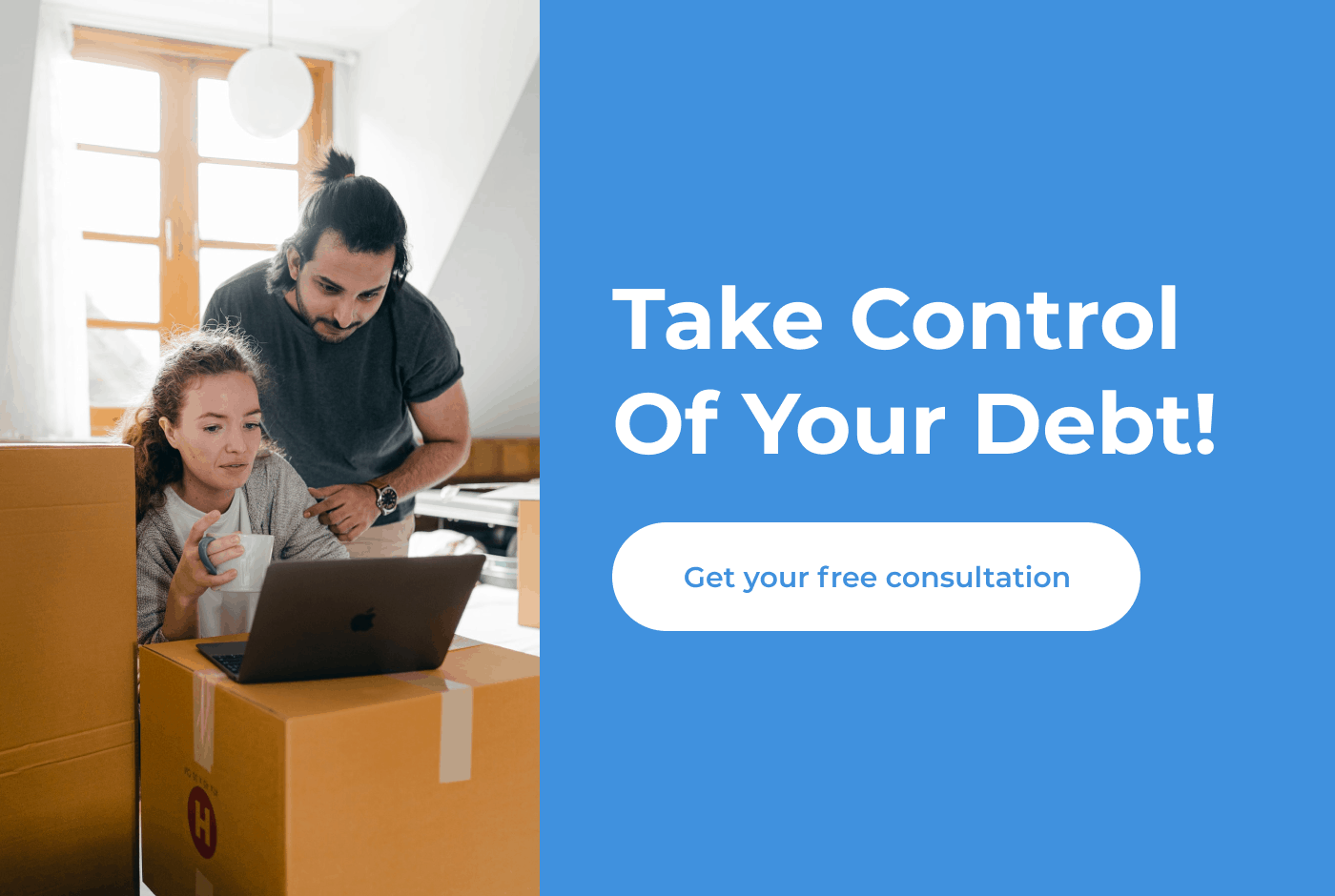How to Achieve Financial Freedom
Posted on December 4, 2020 in Debt
Modern Western society is oriented around the concept of freedoms. Freedom of choice, freedom of responsibility, freedom of lifestyle, freedom to love, freedom to live, freedom to move freely, and many others. However, many of these freedoms seem to be directly related to the road to financial freedom and the ability to spend as much as you want or need to achieve any particular goal.
Table of contents
Having enough financial stability and freedom to make the rest of the decisions you have the freedom to make seems like a stretch for millions of people, and that’s honestly quite a difficult reality to grasp. And while you may not be able to change society yourself to adapt to a more realistic understanding of what people’s freedoms should get them, you can always strive to come to a place of financial freedom on your own.
In this article, let’s explore the different avenues to financial freedom, try to come up with a plan that will help you break free of debt, and look at a lifestyle that affords you the maximum amount of freedom and enjoyment you can possibly have.
The Road to Financial Freedom
What Do You Want From Your Money? The definition of financial well-being looks completely different for so many people.
For some, the goal for financial freedom and stability looks like saving money and getting out of debt and getting to a place where their money can work for them.
For others, financial well-being looks like having a job that pays well above and beyond the necessary cost of living for their area so that they can use the rest of their money to enjoy their lives.
And for others, financial freedom and well-being means having a plump savings account to fall back on or a large portfolio of investments that stretches years into the future.
While all of these definitions are different, they are all valid scenarios and are all worth pursuing if you fall into that specific category. To determine which category you fall into, you have to ask yourself what you want from your money.
For some people, that answer is having enough on hand to afford to send their children to college, others want retirement plans that allow them to stop working at a young age, and as was discussed above, for others, they just need their money to get them out of debt.
The sad reality is that because of the way society is set up, our financial circumstances affect every other aspect of our lives from our social calendars to our job security to our vacations to even the kind of healthcare we can get, and everything in between.
But, while the road to financial freedom may seem daunting and confusing, there are options and there is hope down the line. You just have to get to the point where you’re willing to categorically decide exactly what you need your money to do for you.
Step 1: Come Up With a Plan
The first step on the road to financial freedom comes in the form of actually creating a roadmap. Unlike driving home for the holidays, the map to financial freedom is not already drawn out for you. You’re going to have to find it yourself, and you’re going to have to keep yourself fully accountable to the steps that you lay out and the decisions you come to.
According to the Consumer Financial Protection Bureau, the road to financial well-being helps you take control of your own life goals, achieve financial peace of mind, and avoid pitfalls that can derail your finances in the long run.
Your first step, creating a plan, should definitely involve a budget.
A budget is simply a balance sheet that keeps track of all the income you have earned in a given month, all the expenses you’ve had, and then gives you a total for the amount that you have been able to save based on what you have left over.
A budget should be fairly complex, so don’t skip out on this step. Include line items for every kind of expenditure, from cost of living expenses (rent, mortgage, utilities such as water, sewer, electric, trash, internet), groceries, entertainment, and really any other category you can think of. Include regular, known, monthly expenses as well as budgeting in advance for any out of the ordinary, almost emergency-like expenses. If they happen, you’ll be prepared for them, and if they don’t, then even better! You’ll have some extra cash laying around.
Step 2: Pay Off Debt, If Applicable
By definition, if you owe money to someone else, you are not financially independent or free.
For example, if you have a loan on your car, you don’t even have the title to that car in your possession: the bank owns your car, and you pay them for the privilege of driving it every month until you’ve given them enough money to pay off the fact that they bought the car for you, plus interest. Any kind of debt can (in the long run) be crippling to your financial situation if not carefully taken into consideration.
Credit card debt is especially gruesome in this particular category because of the amount of credit card debt that people are comfortable taking on, combined with the high interest rates and high rates of default at many large banks.
Many credit cards give an annual interest rate (or APR) of around 23.99% to people with average credit scores. This is insane, and to put things in perspective, a $1000 credit card bill at that interest rate, with the minimum monthly payment paid over the course of the next few years will result in over 5 years of payments and a total of over $1600 paid out.
There are several other kinds of debt that are considered unhealthy, or “bad debt,” to carry for any length of time. Personal loans often have interest rates north of 100% when borrowed from shady companies, so make sure you do your research before entering into any kind of payday loan, cash advance loan, or debt consolidation loans. All of these loans can have very damaging effects on your finances, so make sure you read carefully and consult a professional before making any decisions.
Paying off debt is the biggest factor in the journey towards financial independence, because once you owe no money, you answer only to yourself in the decisions that you make, which frees you up to cover any bases you want. Take a look at our Freedom Debt Relief review for a reputable company who can help you pay off your debt.
Step 3: Make Wise Financial Decisions
Once you’ve created a budget and paid off all your debt, your final step on the road to financial freedom involves continuing to make wise decisions.
Do not begin living above your means just because you owe no money and have a chunk of cash invested. Continue to make the right decisions and begin looking into resources that will continue to point you in the right direction.
The more you are willing to educate yourself and expand your financial literacy, the more you will find yourself on the right track for financial freedom.
Additionally, begin to diversify your assets and look into creating investment portfolios that spread your money around, giving you more to fall back on in case of emergency, financial instability, or a market crash.
Financial freedom also means the ability to support yourself in a worst case scenario without having to go back into debt just to pay off expenses incurred during a time of crisis or unknowns.
The Road to Financial Freedom: Final Takeaway
At the end of the day, the road to financial freedom may be a long one, but being debt-free and in control of your money will be worth it.
Financial freedom and financial stability are entirely possible if you are willing to take a step back and re-evaluate your current financial situation and financial goals. Make sure that you give yourself the best chance for your future by taking a deep dive into your options and creating a budget and a roadmap that work for you.
At some point, you may consider discussing your options with a financial professional, especially if you find yourself out of places to turn in your desire to become financially independent.
Just rest assured that your desire to be financially independent and debt free is a great desire, and you’ll find yourself where you want to be in no time.
Related blog posts
Need expert financial advice?
Let TurboFinance connect you with the best consulting services and resources to help you take control of your finances and find a path to build wealth.
Get A Free Consultation Today!
